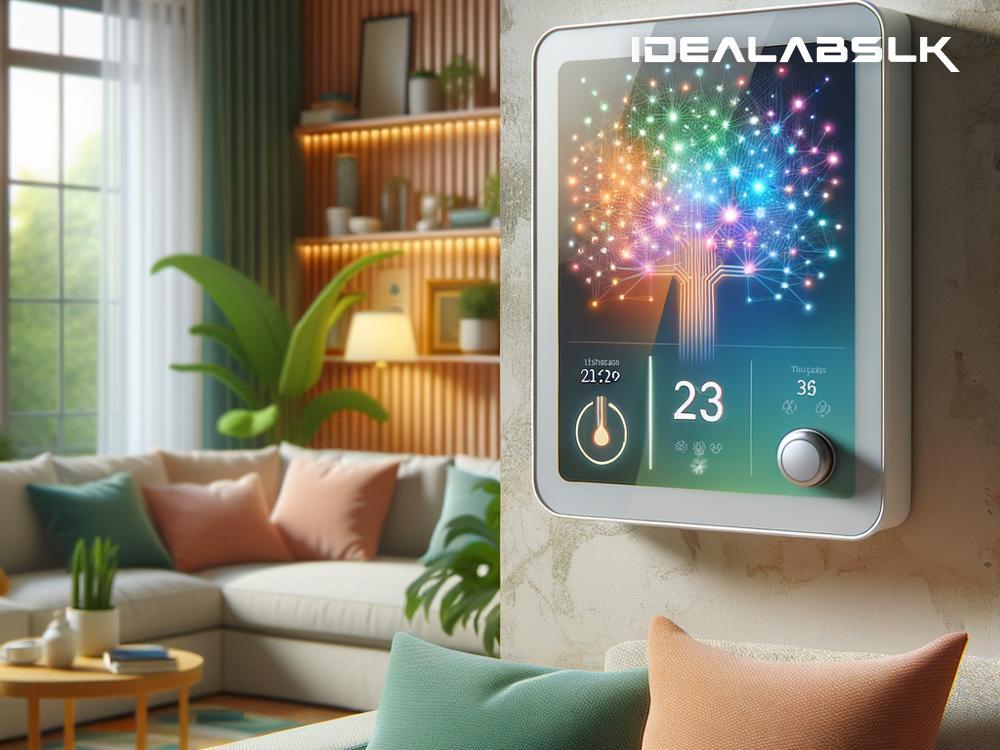AI in Smart Thermostats: Tuning into Your Comfort Zone
In a world that's increasingly powered by intelligent technology, the devices in our homes are becoming smarter by the day. Among these innovations, smart thermostats have emerged as a champion of both convenience and energy efficiency. But what truly sets them apart is their ability to learn from us, adapt to our routines, and anticipate our preferences for indoor climate. This magic is largely thanks to Artificial Intelligence (AI), the brain behind the machine, quietly tuning into our habits and comforts.
Imagine walking into your home on a chilly evening to find it cozy and warm, just the way you like it, without having to fiddle with any controls. Or picture a scenario where your house automatically cools down while you're at work, conserving energy and saving you money. These aren't scenes from a sci-fi movie; they're real-life comforts afforded by smart thermostats powered by AI.
How Do Smart Thermostats Learn?
Smart thermostats, like the popular Nest or Ecobee, learn by closely observing your interactions with them and the environment around them. They track when you adjust the temperature, noting the time of day and your adjustments' patterns. These devices are equipped with a range of sensors that monitor humidity, ambient light, and even your presence in the house.
AI algorithms process this data to understand your daily routines and temperature preferences. Over time, the thermostat can predict when you'll be home and your desired temperature at that time, adjusting the settings accordingly. This learning process enables the thermostat to maintain your comfort while optimizing energy use, striking a perfect balance between the two.
The Role of AI
At the heart of a smart thermostat's ability to learn is AI, particularly a branch called Machine Learning (ML). ML algorithms can identify patterns in large datasets, such as the times of day you usually adjust the thermostat and how those adjustments correlate with external factors like the weather.
These algorithms continuously refine their predictions based on new data. So, if your routine changes – say, you start waking up earlier for a new job – the smart thermostat adapts to this new pattern. This ability to learn and adapt is what makes these devices "smart."
Beyond Basic Learning
But the learning doesn't stop with just your routines. Smart thermostats can also integrate with other smart devices in your home and even tap into local weather forecasts to make more informed adjustments. For example, knowing it's going to be exceptionally hot tomorrow, your thermostat can preemptively cool down the house in the morning when energy costs might be lower.
Moreover, many smart thermostats come with companion apps that provide insights into your energy usage, offering recommendations on how you could adjust your settings to save money without sacrificing comfort. These recommendations are, again, fueled by AI, analyzing your usage patterns and suggesting small tweaks for efficiency.
Privacy and Security
With all this data collection and analysis, it's natural to wonder about privacy and security. Reputable smart thermostat manufacturers are keenly aware of these concerns and take measures to encrypt data and offer users control over their information. Nevertheless, as with any smart device, it's essential to understand and utilize available privacy settings and keep your device's firmware up to date to protect against potential vulnerabilities.
The Future of AI in Smart Thermostats
The journey of AI in smart thermostats is far from over. Future advancements could bring even more intuitive features, such as voice-activated controls that understand natural language, or integration with wearables to adjust room temperature based on your body temperature. The potential is vast and, as AI technology evolves, so will the capabilities of smart thermostats.
Wrapping Up
Smart thermostats represent a stepping stone towards a future where our homes not only shelter us but understand us, responding to our needs seamlessly and efficiently. Powered by AI, these devices are more than just programmable thermostats; they're an active partner in our quest for comfort and sustainability. So, as we continue to embrace these intelligent devices, we're not just making our lives easier; we're also contributing to a smarter, more energy-efficient world.

